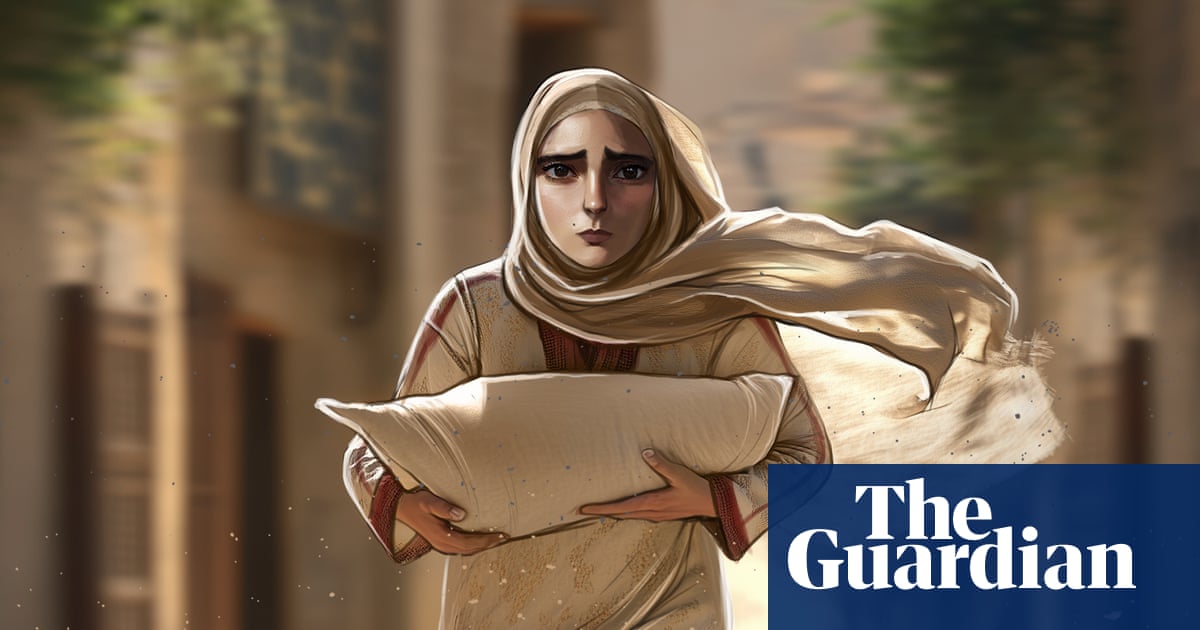In the city of Nablus in the West Bank, Rasheed Abueideh owns a nut roastery, where he works to provide for his family. He is also an award-winning game developer. A decade ago, as the 2014 Gaza war raged, he created a harrowing video game called Lilya and the Shadows of War, about a man trying to find safety for his daughter and himself – but as missiles fall around them, it quickly becomes clear that there is no safety. When the game was released in 2016, it was initially rejected by Apple on the grounds of inappropriate content, a decision reversed after a week of outcry.
Despite the acclaim and attention that Lilya received, however, Abueideh has not been able to raise funding for his next game through conventional means. The game he envisions, Dreams on a Pillow, is about the 1948 Nakba, told through a folk tale about a mother in the Arab-Israeli war, in which more than half the Palestinian population was displaced. He tells me that his game has been rejected almost 300 times, by publishers and providers of cultural grants, for being too controversial, too much of a risk. “Talking about the Palestinian story was always forbidden,” he says.
Now, once again, war rages in Abueideh’s home. The developer fears for his safety, and he is determined to tell this Palestinian story. With the help of a small team of developers and advisers from the region and beyond, he launched a crowdfunding campaign in the hopes of making Dreams on a Pillow a reality.
“Crowdfunding was our only option, but even that would not work for me because all the major crowdfunding platforms do not recognise Palestine,” says Abueideh. The team turned to LaunchGood, a Muslim-focused platform, where it met its funding goal on 7 January. It’s enough to cover at least half the game’s development costs, and he hopes that once the game starts to take shape, it will be easier to find the rest. “I am overjoyed,” he says. “The support on social media and on the campaign page has been overwhelming, demonstrating how much people care about the Palestinian story … I didn’t expect this level of success.”
The folk tale that inspired Dreams on a Pillow tells of a mother who rushes into her home to retrieve her baby before fleeing, only to realise that she has escaped with a pillow instead. In the game, she spends her days trying to make her way to Lebanon after the massacre at Tantura, and the nights dreaming of the Palestine she knew as a child. Putting the pillow down lets her move through the game’s scenarios more freely, but invites nightmares and hallucinations. Abueideh estimates that it will take two years to complete; heartbreakingly, the crowdfunding page contains an assurance that “a clear plan for the completion of the game has been put in place to ensure continuity in the case of Rasheed’s disappearance, injury or demise at the hand of the continuously expanding Israeli aggression in the West Bank”.
“The goal is to let the player feel and understand what happened to the Palestinians during this dark era, which is still shaping our daily lives,” says Abueideh. “I want to deliver a message that the ethnic cleansing of Palestinians is an ongoing process that started in 1948. At that point, [players] will be able to understand what is happening today and can take a stand.”









